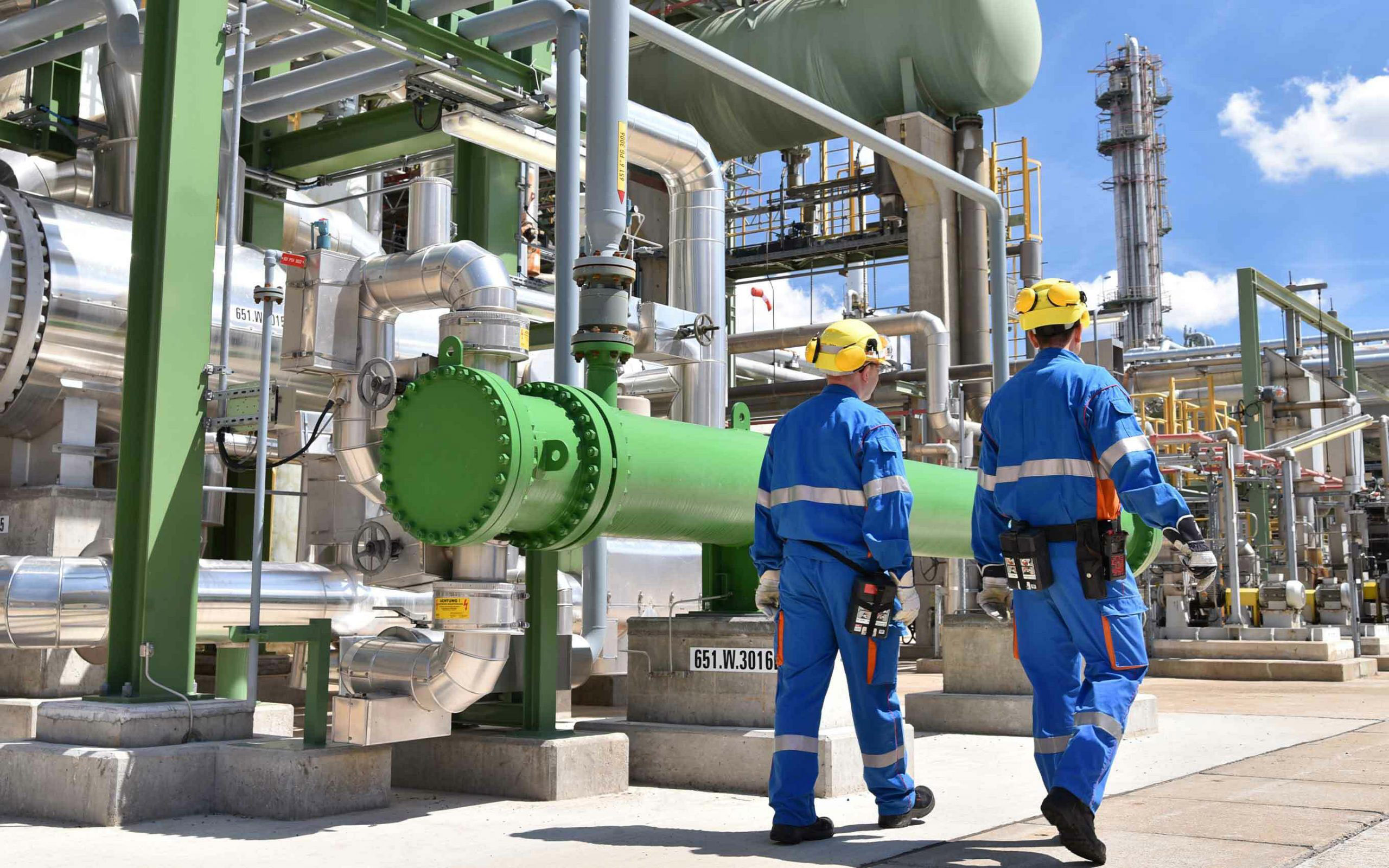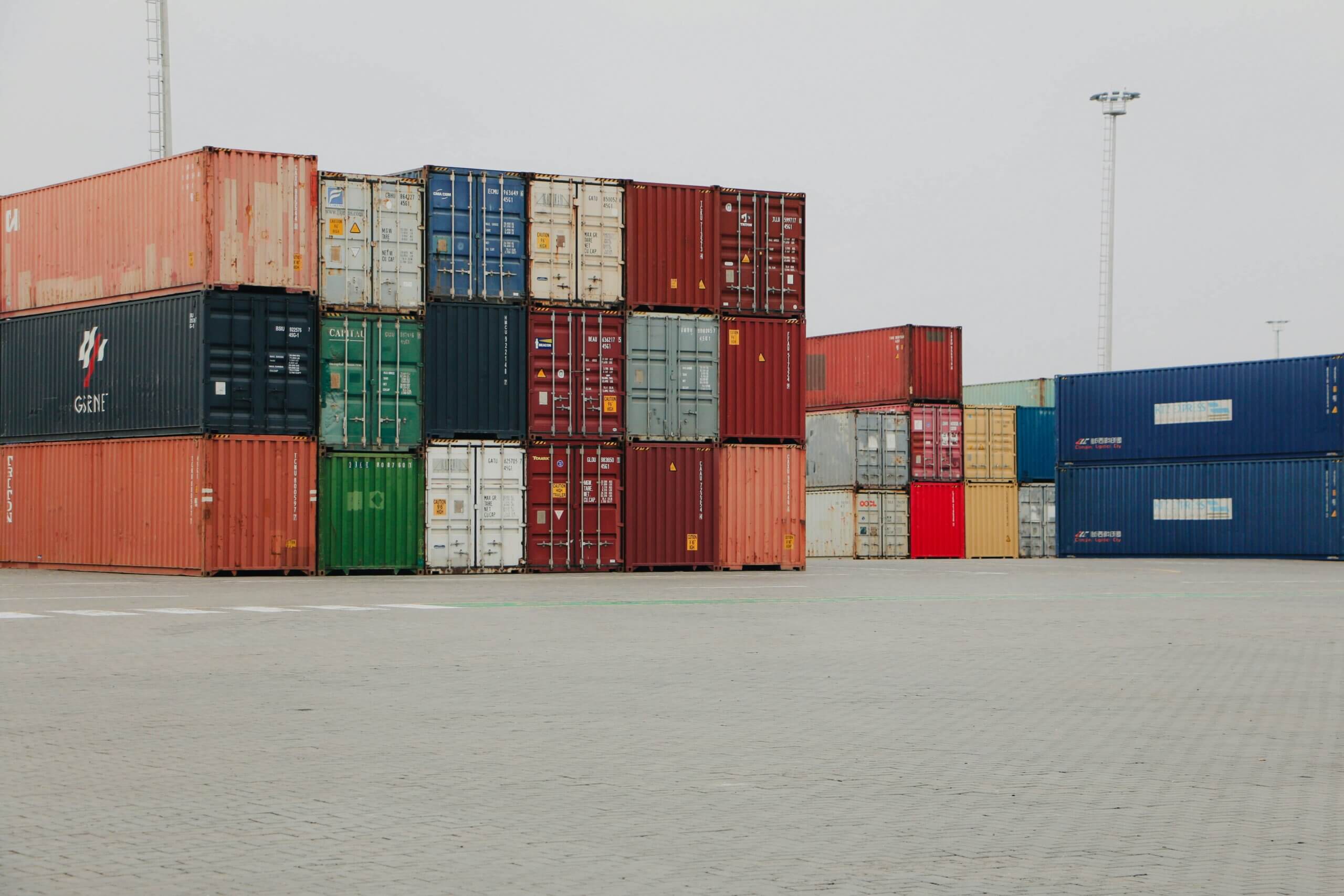With more than 20 million employees and annual sales of nearly five trillion US dollars, the chemical industry is one of the largest in the world, supplying products and raw materials to sectors including agriculture, automotive, construction, and food. On the heels of pandemic-related disruptions and increased global competition, the industry faces many challenges. Transformation is needed in many areas, including improving supply chain management with a focus on visibility and transparency.
Supply chain efficiency plays a critical role in the long-term viability of chemical companies. There are many elements that can make or break an organization’s ability to compete, including effective warehousing solutions built to support production lines, greater cost efficiencies that drive higher margins, improved safety and compliance, and on-time deliveries that strengthen customer loyalty.
While chemical companies are aware of these opportunities in theory, they sometimes struggle to take advantage of them. A recent survey conducted earlier this year by the American Chemistry Council (ACC) looked at transportation-related supply chain issues that are having a serious operational impact on many companies.
Key findings including the following:
-
-
Among respondents, almost all (97%) companies reported modifying operations because of supply chain issues and/or transportation disruptions and delays.
-
-
-
Most chemical producers (92%) have increased inventories of raw materials/ supplies on hand in response to supply chain challenges. More than half (62%) of respondents have increased inventories of finished products.
-
-
-
About half of chemical producers (52%) have curtailed production due to inability to ship products to customers and many companies (35%) have had customers cancel orders due to concerns that their order will not arrive or will not arrive on time.
-
Supply Chain Challenges: Chemical Industry Companies Fight a Multi-front Battle
Because they have to contend with multiple supply chain challenges, companies in the chemical industry need to take advantage of every opportunity and innovative technology available. While each company has its own unique challenges, here are five key challenges that affect most organizations across the industry.
1. Complex Supply Chains
Unlike other manufacturing sectors, which tend to have fairly simple, more linear processes that deliver a consistent end product, the chemical industry’s manufacturing process contains a wide range of variables. Different processes can be run individually or combined, manufacturing can run as batch production, and different types of processes can be used to produce either intermediate or finished products for a variety of purposes. The existence of all these potential manufacturing options adds layers of complexity to inventory planning, pricing, procurement, and quality control, meaning that chemical companies need a powerful and flexible way to monitor and manage all of these moving parts.
2. Strong Global Competition
Because they operate in a commoditized market, it is especially important for chemical companies to be able to deliver materials on time and at the right price. Service, speed, and reliability are critical differentiators. If a company is unable to meet a customer’s requirements, that customer can easily turn to another supplier to fill the need. In addition to general competition, there is also the fact that opportunities for organic growth are slowing due to the saturation of Western markets, and the shift of value chains to Asia. To stay ahead of these trends and maintain the agility needed to consistently meet customer demands, successful chemical companies must have a firm handle on managing their supply and demand capabilities.
3. High Levels of Regulation
Further complicating operations for chemical companies is the existence and constant evolution of the complex laws and regulations affecting the industry. Just keeping up with the changes in standardization, labeling, and other requirements across multiple government agencies is a highly labor-intensive undertaking, but it’s one that cannot be overlooked. Noncompliance carries a risk of severe fines, reputation damage, vulnerability to competitors, and – ultimately – negative influence on revenue and profits.
4. Need for Close Asset Tracking
Chemical companies also have very specific monitoring needs when it comes to their assets since the industry requires specialized equipment such as tanks that are built to ISO (International Organization for Standardization) standards for transporting both hazardous and non-hazardous liquid assets. For safety, quality control, and cost management, it’s imperative that a chemical company has the ability to closely monitor the real-time location and condition of these containers and other assets throughout the delivery process.
5. Massive Amounts of Data
Finally, all these different manufacturing variables, regulations, and specialized assets combine to create a highly complex business ecosystem that generates huge amounts of data. And to make things more difficult to manage, much of the supply-chain data does not exist in-house, but is held by third parties. Having the right tools in place is critical to enable real-time insights that allow the company to uncover actionable steps that benefit production planning, plant locations, inventory management, customer service, regulatory compliance, and more.
Supply Chain Visibility: The Critical Success Factor for Chemical Companies
Perhaps more than any other element, supply chain visibility can make or break a chemical company’s business. Having intelligent, real-time visibility into activity between suppliers, vendors, partners, and shippers is absolutely necessary for an organization that wants to keep customers happy and remain one step ahead in a very competitive industry.
And despite the challenges, there is still a lot of opportunity for growth in this industry. Today, 96 percent of all manufactured goods have some dependency on chemical products, meaning there is enormous potential for chemical companies that have optimized their supply chain management to ensure maximum efficiency and control.
Learn more about how project44 can help your business succeed
With the leading global and multimodal supply chain visibility platform, project44 ensures comprehensive visibility at every step of the way. Customer’s benefit from having fast, reliable access to:
-
-
An overview of all transport modalities in real time
-
-
-
Predictive shipping analyses
-
-
-
The ability to secure shipments and avoid costly damage and delays by tracking container temperature and conditions
-
-
-
Shipment monitoring at the batch level to ensure best quality and to minimize risks
-
-
-
Secure management of data sharing in the supply chain, and more.
-
Together, along with other powerful features, these key benefits help chemical companies and others improve delivery reliability and efficiency, increase profitability, and reduce transit time variability and overall risk.



